What is a Positive Relationship?


What is a positive relationship? We know that we want to have them with our parents, friends, and partners.
Is it being able to communicate?
Is it being able to give and take?
Is it about having equal roles?
Maybe all of the above? Or perhaps none.
Humans are social and emotional animals. Seeking love and companionship through romantic relationships is one of the most fundamental parts of life. However, due to a substantial collection of historical and socioeconomic changes, the concept and idea of a “relationship”, a “partner” and “commitment” has been in constant evolution across generations.
We’ve moved from depending on physical proximity to meet new people, to being able to find potential partners from across the world thanks to digital apps. The gender roles that once heavily defined an acceptable relationship have slowly dissolved, and become redefined by younger generations. Relationships have evolved from the traditional mold of committed heteronormativity to a wide variety of relationships that welcome inclusivity and diversity. It’s true that a huge part of changes have been progressive. At the same time, it could be fair to say that the true definition of what makes a good relationship has remained rather blurred.
Based on sociological studies, this post will focus on what it means to have a healthy and positive relationship with a romantic partner. There is no doubt our overall well being is achieved through a chain reaction of many elements like good mental and physical health and the efficient management of emotions and stress. Having fulfilling and healthy relationships is definitely an important component of the journey towards life satisfaction and happiness. First, we’ll touch upon what a relationship actually is, and continue to focus on honesty; one of the most important aspects of healthy relationships, yet a common challenge. The objective is to provide you with a different perspective on the role of honesty in relationships and suggest how you can rely on it to boost positivity and trust.
What Is A Positive Relationship?
Having a partner is completely different from having a friend. At first, the difference between both can be quite simple. As Guerrero & Mongeau (2008) begin to explain, a romantic relationship may develop from having more intense romantic feelings, or a more pronounced physical attraction to each other. However, there is a wide range of reasons besides those for why two (or more) people may decide to be together. In fact, there is actually no true definition for what a relationship is (Guerrero & Mongeau, 2006). Instead, what defines a romantic relationship is the mutual definition that the people who are involved in it agree on.
Based on this, there’s a good, and a bad side. On one hand, the thought there not being a true definition of relationship may feel quite freeing. On the other, the thought of not having guidelines that outline what exactly is a good relationship can seem quite challenging too. However, it is this freedom of setting our own boundaries and standards that are so empowering and necessary for our own happiness and satisfaction in the relationships we have.
Even if there isn’t a completely scientific and accurate definition of a good relationship or a good partner, research has come up with interesting findings of what different people consider a good relationship to consist of - particularly in terms of their partners. Like in the research of education and psychology scholars Stephanou (2011) and Weber & Ruch (2012) people that honesty, effective communication, social and emotional intelligence, kindness, and love are the most important elements that construct a positive relationship. Sounds familiar, right? Many of us would probably agree.
For this next part of the post, we’d like to focus on honesty.
Why is Honesty Important?
When it comes to honesty, many of us think of it as a good quality that everyone should have, and that it is constructive towards a positive relationship. But in practice, being honest can be very difficult for many of us.
According to psychology and organizational behaviour scholars Levine & Cohen (2018), an important reason for why people often feel apprehensive or uncomfortable about being honest about a certain issue is because they overestimate a negative reaction of others to their honesty. On the contrary - they found that honesty contributed to an increased sense of wellbeing in interpersonal relationships.
Perhaps you’ve seen it before in your own relationships. Like that time you felt like you weren’t being listened to, taken for granted, or feeling unsure about where you stood. Or what about the time something bothered you, but you were too afraid to talk about it in fear of seeming dramatic or hurting the other person’s feelings.
As we could see from the studies above, it’s clear that many of us appreciate honesty and would like those around us to practice it. Honesty is nothing to be fearful of. It is, indeed, a very important aspect of what makes a positive relationship click; but it is, at the same time, a skill that needs practice. The saying “honesty without tact and compassion is cruelty” is there to emphasize the importance of being careful with our words.
Words are powerful; they cannot be taken back, so we have to make them count and use them for good.
All in all, the objective of this article was to highlight one of the many aspects that make positive relationships. From a sociological point of view, it’s clear that honesty is the best policy; although it is completely normal for it to seem daunting. The difference it can make in your relationship is evident - but it can also work incredibly well to provide you with clarity, satisfaction and tranquility.
Resources:
Guerrero, L. K., & Mongeau, P. A. (2008). On becoming “more than friends”: The transition from friendship to romantic relationship. Handbook of relationship initiation, 175-194.
Levine, E. E. & Cohen, T. R. (2018) You can handle the truth: Mispredicting the consequences of honest communication. Journal of Experimental Psychology: General, 147(9), 1400–1429.
Stephanou, G. (2011) Romantic Relationships in Emerging Adulthood: Perception-Partner Ideal Discrepancies, Attributions and Expectations. Psychology, 3(02), 150.
Weber & Ruch (2012) The role of character strengths in adolescent romantic relationships: An initial study on partner selection and mates’ life satisfaction. Journal of Adolescence, 35, 1537-1546.




